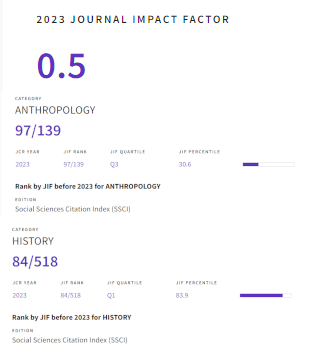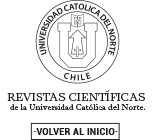Large-scale mining, territorial pluralism and contention:
Mapping encounters and divergences in the ecuadorian amazon
DOI:
https://doi.org/10.22199/issn.0718-1043-2019-0031Keywords:
large-scale mining, conflict, territory, contentious politics, EcuadorAbstract
Over the last decade, Ecuador has become a new frontier for large-scale mining expansion and this article aims to analyze the territorial transformations and contentious politics that are induced by this new capitalist activity. It therefore presents a case-study of Ecuador’s first large-scale mining project, the Mirador copper mine in the Cordillera del Cóndor in the Amazon region. Using analytical insights from the current debates on territory, specifically the recently coined concept of “territorial pluralism”, the article shows the multiple historical territorialization processes that shaped the Cordillera del Cóndor and describes the interruptive reconfiguration introduced by the mining project. It furthermore examines the visions and strategies of local resistance group. Based on this analysis, I conclude that this particular approach to territory contributes to our comprehension of mining conflicts by revealing the distinct forms of understanding and relating to space and nature, and the power relations that constitute them. I moreover argue that territorial pluralism helps to explain how the repertoires of contention and alternatives that surge from these struggles are structured.
Downloads
References
Agnew, J. (1994). The territorial trap: the geographical assumptions of international relations theory. Review of International Political Economy, 1(1), 53-80.
Agnew, J. y Oslender, U. (2013). Overlapping territories, soevereignity in dispute: empirical lessons from Latin America. En Nicholls, W. y Miller, B. (Eds.). Spaces of Contention: Spatialities and Social Movements (pp. 121-140). London: Ashgate Publishing, Ltd.
Arsel, M., Hogenboom, B. y Pellegrini, L. (2016). The Political Economy of the Extractive Imperative: Social Conflict, Development and the State in Latin America. Extractive Industry and Society, 3(4), 880-887.
Avcı, D. y Fernández-Salvador, C. (2016). Territorial dynamics and local resistance: Two mining conflicts in Ecuador compared. The Extractive Industries and Society, 3(4), 912-921. https://doi.org/10.1016/j.exis.2016.10.007
Baletti, B. (2012). Ordenamento Territorial: Neo-developmentalism and the struggle for territory in the lower Brazilian Amazon. Journal of Peasant Studies, 39(2), 573-598. https://doi.org/10.1080/03066150.2012.664139
Bebbington, A., Humphreys Bebbington, D., Bury, J., Lingan, J., Muñoz, J. P. y Scurrah, M. (2008). Mining and social movements: struggles over livelihood and rural territorial development in the Andes. World Development, 36(12), 2888-2905.
Bebbington, A., Humphreys Bebbington, D. H., Hinojosa, L., Burneo, M. L. y Bury, J. (2013). Anatomies of conflict: social mobilizations and new political ecologies of the Andes. En Bebbington, A. y Bury, J. T. (Eds.). Subterranean Struggles: new dynamics of mining, oil, and gas in Latin America (pp. 241-266). Austin: University of Texas Press.
Boelens, R., Hoogesteger, J., Swyngedouw, E., Vos, J. y Wester, P. (2016). Hydrosocial territories: a political ecology perspective. Water International, 41(1), 1-14. https://doi.org/10.1080/02508060.2016.1134898
Bottasso, J. (1987). La vida del pueblo shuar. Quito: Abya-Yala.
Brand, U., Dietz, K. y Lang, M. (2016). Neo-Extractivism in Latin America – one side of a new phase of global capitalist dynamics. Ciencia Política, 11(21), 125-159. https://doi.org/10.15446/cp.v11n21.57551
Brighenti, A. M. (2010). On Territorology Towards a General Science of Territory. Theory, Culture & Society, 27(1), 52-72. https://doi.org/10.1177/0263276409350357
Burchardt, H.-J. (2016). El neo-extractivismo en el siglo XXI. Qué podemos aprender del ciclo de desarrollo más reciente en América Latina. En Burchardt, H.-J., Larrea, C. y Peters, S. (Eds.). Nada dura para siempre: neo-extractivismo tras el boom de las materias primas (pp. 55-87). Quito: Abya-Yala.
Burchardt, H.-J. y Dietz, K. (2014). (Neo-)extractivism – a new challenge for development theory from Latin America. Third World Quarterly, 35(3), 468-486. https://doi.org/10.1080/01436597.2014.893488
Burchardt, H.-J., Domínguez, R., Larrea, C. y Peters, S. (Eds.) (2016). Nada dura para siempre: neo-extractivismo tras el boom de las materias primas. Quito: Abya-Yala.
Bury, J. y Bebbington, A. (2013). New Geographies of Extractive Industries in Latin America. En Bebbington, A. y Bury, J. (Eds.). Subterranean Struggles: new dynamics of mining, oil, and gas in Latin America (pp. 27-66). Austin: University of Texas Press.
Bustamante, T. (1988). Larga lucha del Kakaram contra el Sucre. Quito: Abya-Yala.
Cardno Entrix (2014). Actualización del Estudio de Impacto Ambiental y Plan de Manejo Ambiental. Quito: Cardno Entrix Consultants.
CEDHU y FIDH (2010). Intervención minera a gran escala en Ecuador y vulneración de derechos humanos: Caso Corriente Resources. Quito: Comisión Ecuménica de Derechos Humanos y Federación Internacional de Derechos Humanos.
Composto, C. y Navarro, M. L. (Eds.) (2014). Territorios en disputa. Despojo capitalista, luchas en defensa de los bienes comunes naturales y alternativas emancipatorias para América Latina. México DF: Bajo Tierra Ediciones.
Conde, M. (2017). Resistance to Mining. A Review. Ecological Economics, 132, 80-90. https://doi.org/10.1016/j.ecolecon.2016.08.025
Conde, M. y Le Billon, P. (2017). Why do some communities resist mining projects while others do not? The Extractive Industries and Society, 4(3), 681-697. https://doi.org/10.1016/j.exis.2017.04.009
Cox, K. R. (1991). Redefining ‘territory.’ Political Geography Quarterly, 10(1), 5-7. https://doi.org/10.1016/0260-9827(91)90023-N
Delaney, D. (2009). Territory and Territoriality. En R. Kitchin, R. y Thrift, N. (Eds.). International Encyclopedia of Human Geography (pp. 196-208). Oxford: Elsevier.
Deonandan, K. y Dougherty, M. L. (Eds.) (2016). Mining in Latin America: Critical approaches to the new extraction. New York: Routledge Earthscan.
Dietz, K. y Engels, B. (2017a). Contested extractivism: actors and strategies in conflicts over mining. DIE ERDE – Journal of the Geographical Society of Berlin, 148(2-3), 111-120.
Dietz, K. y Engels, B. (2017b). Contested Extractivism, Society and the State: An Introduction. En Engels, B. y Dietz, K. (Eds.). Contested Extractivism, Society and the State (pp. 1-19). Palgrave Macmillan UK. https://doi.org/10.1057/978-1-137-58811-1_1
Elden, S. (2013). The birth of territory. Chicago, IL: University of Chicago Press.
Escobar, A. (2001). Culture sits in places: reflections on globalism and subaltern strategies of localization. Political Geography, 20(2), 139-174. https://doi.org/10.1016/S0962-6298(00)00064-0
Escobar, A. (2016). Sentipensar con la Tierra: Las Luchas Territoriales y la Dimensión Ontológica de las Epistemologías del Sur. AIBR, Revista de Antropología Iberoamericana, 11(1), 11-32. https://doi.org/10.11156/312
Foucault, M. (1982). The subject and power. Critical Inquiry, 8(4), 777-795.
Foucault, M. (2007). Security, territory, population: lectures at the Collège de France, 1977-78. New York: Picador.
Galeano, E. (1973). Open veins of Latin America: five centuries of the pillage of a continent. New York: Monthly Review Press.
Giménez, G. (2005). Territorio e identidad. Breve introducción a la geografía cultural. Trayectorias, VII(17), 8-24.
Goodale, M. y Postero, N. (2013). Neoliberalismo, interrupted: social change and contested governance in contemporary Latin America. Palo Alto, CA: Stanford University Press.
Gudynas, E. (2009). Diez tesis urgentes sobre el nuevo extractivismo. Extractivismo, Política y Sociedad, 187-225.
Haesbaert, R. (2010). Território e multiterritorialidade: um debate. GEOgraphia, 9(17), 19-46.
Harner, M. J. (1984). The Jívaro: People of the Sacred Waterfalls. Oakland, CA: University of California Press.
Haslam, P. A. y Ary Tanimoune, N. (2016). The Determinants of Social Conflict in the Latin American Mining Sector: New Evidence with Quantitative Data. World Development, 78, 401-419. https://doi.org/10.1016/j.worlddev.2015.10.020
Hogenboom, B. (2012). Depoliticized and Repoliticized Minerals in Latin America. Journal of Developing Societies, 28(2), 133-158.
Hoogesteger, J., Boelens, R. y Baud, M. (2016). Territorial Pluralism: Water users’ multi-scalar struggles against state ordering in Ecuador’s Highlands. Water International, 41(1), 91-106.
Latorre, S. (2012). El movimiento ecologista popular anti-minero en el Ecuador. Ecuador Debate, 87, 122-45.
Lefebvre, H. (1991). The production of space (Vol. 142). Oxford: Blackwell.
Li, T. M. (2007). Governmentality. Anthropologica, 49(2), 275.
Little, P. E. (2001). Amazonia: territorial struggles on perennial frontiers / Paul E. Little. Baltimore:Johns Hopkins University Press.
Mähler, A. y Pierskalla, J. H. (2015). Indigenous Identity, Natural Resources, and Contentious Politics in Bolivia: A Disaggregated Conflict Analysis, 2000-2011. Comparative Political Studies, 48(3), 301-332. https://doi.org/10.1177/0010414014545012
Massey, D. (2004). Lugar, identidad y geografías de la responsabilidad en un mundo en proceso de globalización. Treballs de la Societat Catalana de Geografia, 77-84.
Middeldorp, N., Morales, C. y Van der Haar, G. (2016). Social mobilisation and violence at the mining frontier: The case of Honduras. The Extractive Industries and Society, 3(4), 930-938. https://doi.org/10.1016/j.exis.2016.10.008
Moore, D. S. (2005). Suffering for territory: Race, place, and power in Zimbabwe. Durham, NC: Duke University Press.
Neill, D. A. (2007). Inventario botánico de la región de la Cordillera el Cóndor, Ecuador y Perú: actividades y resultados científicos del proyecto, 2004-2007.
Painter, J. (2010). Rethinking Territory. Antipode, 42(5), 1090-1118. https://doi.org/10.1111/j.1467-8330.2010.00795.x
Paz, M. F. (2014). Paisajes mineros, geografías de resistencia. Territorialidades en disputa en Guatemala y Chiapas, México. Latin American Encounters, 2.
Peluso, N. L. y Lund, C. (2011). New frontiers of land control: Introduction. The Journal of Peasant Studies, 38(4), 667-681. https://doi.org/10.1080/03066150.2011.607692
Porto-Gonçalves, C. W. (2001). Geo-grafías: Movimientos sociales, nuevas territorialidades y sustentabilidad. México: Siglo XXI.
Raffestin, C. (1993). Por uma geografia do poder. São Paulo: Ática.
Raffestin, C. y Butler, S. A. (2012). Space, territory, and territoriality. Environment and Planning-Part D, 30(1), 121-141.
Restrepo Guzmán, M. T. (1992). Estado, actores y conflicto social en la Amazonia: el caso de Morona Santiago (1940-1992). Quito: Flacso.
Romero Toledo, H., Videla, A. y Gutiérrez, F. (2017). Explorando conflictos entre comunidades indígenas y la industria minera en Chile: las transformaciones socioambientales de la región de Tarapacá y el caso de Lagunillas. Estudios Atacameños. Arqueología y Antropología Surandinas, 55, 231-250. https://doi.org/10.4067/S0718-10432017005000019
Rubenstein, S. (2001). Colonialism, the shuar Federation, and the Ecuadorian State. Environment and Planning D: Society and Space, 19(3), 263-293. https://doi.org/10.1068/d236t
Rubenstein, S. (2005). La conversión de los shuar (Dossier). Íconos: Revista de Ciencias Sociales, 22, 27-48.
Rubenstein, S. (2007). Circulation, Accumulation, and the Power of Shuar Shrunken Heads. Cultural Anthropology, 22(3), 357-399. https://doi.org/10.1525/can.2007.22.3.357
Rudel, T. K., Bates, D. y Machinguiashi, R. (2002). Ecologically noble Amerindians? Cattle ranching and cash cropping among Shuar and colonists in Ecuador. Latin American Research Review, 37(1), 144-159.
Sack, R. D. (1986). Human territoriality: its theory and history. Cambridge, MA: Cambridge University Press.
Senplades (2009). Plan Nacional para el Buen Vivir 2009-2013, Construyendo un Estado Plurinacional e Intercultural. Quito: Senplades.
Soja, E. W. (1989). Postmodern Geographies: The Reassertion of Space in Critical Social Theory. London: Verso.
St. John, R. B. (1998). Ecuador-Peru Endgame. IBRU Boundary and Security Bulletin (Winter, 1999), 79-85.
Tarrow, S. (2011). Power in Movement: Social Movements and Contentious Politics. Cambridge, MA: Cambridge University Press.
Tarrow, S. y Tilly, C. (2009). Contentious Politics and Social Movements. En Boix, C. y Stokes, S. (Eds.). The Oxford Handbook of Comparative Politics (pp. 437-460). Oxford: Oxford University Press.
Terrambiente S. A. (2006). Estudio de Impacto Ambiental Ampliatorio Proyecto Mirador. Quito: Terrambiente S.A.
Tilly, C. (2000). Spaces of Contention. Mobilization: An International Quarterly, 5(2), 135-159. https://doi.org/10.17813/maiq.5.2.j6321h02n200h764
Urkidi, L., y Walter, M. (2011). Dimensions of environmental justice in anti-gold mining movements in Latin America. Geoforum, 42(6), 683-695. https://doi.org/10.1016/j.geoforum.2011.06.003
Van Teijlingen, K. (2016). The ‘Will to Improve’ at the Mining Frontier: Neo-Extractivism, Development and Governmentality in the Ecuadorian Amazon. The Extractive Industries and Society, 3(4), 902-911. https://doi.org/doi:10.1016/j.exis.2016.10.009
Van Teijlingen, K. y Hogenboom, B. (2016). Debating Alternative Development at the Mining Frontier: Buen Vivir and the Conflict around El Mirador Mine in Ecuador. Journal of Developing Societies, 32(4).
Van Teijlingen, K. y Warnaars, X. (2017). Pluralismo territorial e identidades en el conflicto minero en la Cordillera del Condor. En van Teijlingen, K., Leifsen, E., Fernandez-Salvador, C. y Sánchez-Vásquez, L. (Eds.). La Amazonía Minada: Minería a gran escala y conflictos en el Sur del Ecuador (pp. 103-140). Quito: Editorial USFQ y Ediciones Abya-Yala.
Veltmeyer, H. y Petras, J. (2014). The New Extractivism: A post-neoliberal development model or imperialism of the twenty-first century? London: Zed Books.
Walker, R. B. (1993). Inside/outside: international relations as political theory (Vol. 24). Cambridge, MA: Cambridge University Press.
Walsh Environmental Scientists and Engineers. (2010). Estudio de impacto ambiental para la fase de explotación a cielo abierto del proyecto minero de cobre Mirador.Quito: Walsh Environmental Scientists and Engineers.
Walter, M. y Urkidi, L. (2017). Community mining consultations in Latin America (2002-2012): The contested emergence of a hybrid institution for participation. Geoforum, 84, 265-279.
Warnaars, X. (2012). Sin fronteras: minerales, territorio y movimientos sociales en la Amazonía ecuatoriana. Theomai, 25, 87-93.
Warnaars, X. (2013). Territorial transformation in El Pangui, Ecuador: understanding how mining conflict affects territorial dynamics, social mobilization and daily life. En Bebbington, A. y J. T. Bury, J. T. (Eds.). Subterranean Struggles: new dynamics of mining, oil, and gas in Latin America (pp. 149-171). Austin, TX: University of Texas Press.
Yeh, E. T. (2003). Tibetan Range Wars: Spatial Politics and Authority on the Grasslands of Amdo. Development and Change, 34(3), 499-523. https://doi.org/10.1111/1467-7660.00316
Downloads
Published
Issue
Section
License

All works published in Revista Estudios Atacameños (ISSN on line:0718-1043) Revista Estudios Atacameños Creative Commons International 4.0 attribution (CC BY 4.0) licence.
Authors remain the owners of their work and may republish their articles elsewhere without having to request permission, as long as they indicate that the work was originally published in Revista Estudios Atacameños (ISSN on liine:0718-1043).












